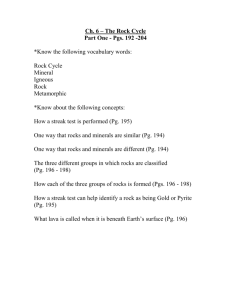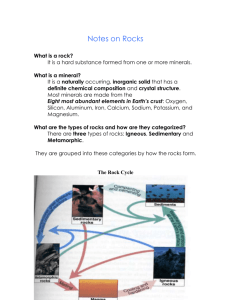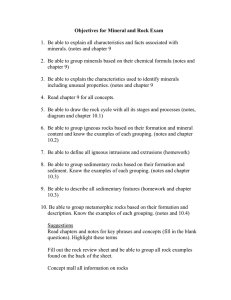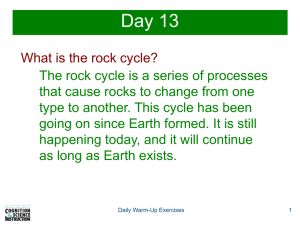Geology
advertisement
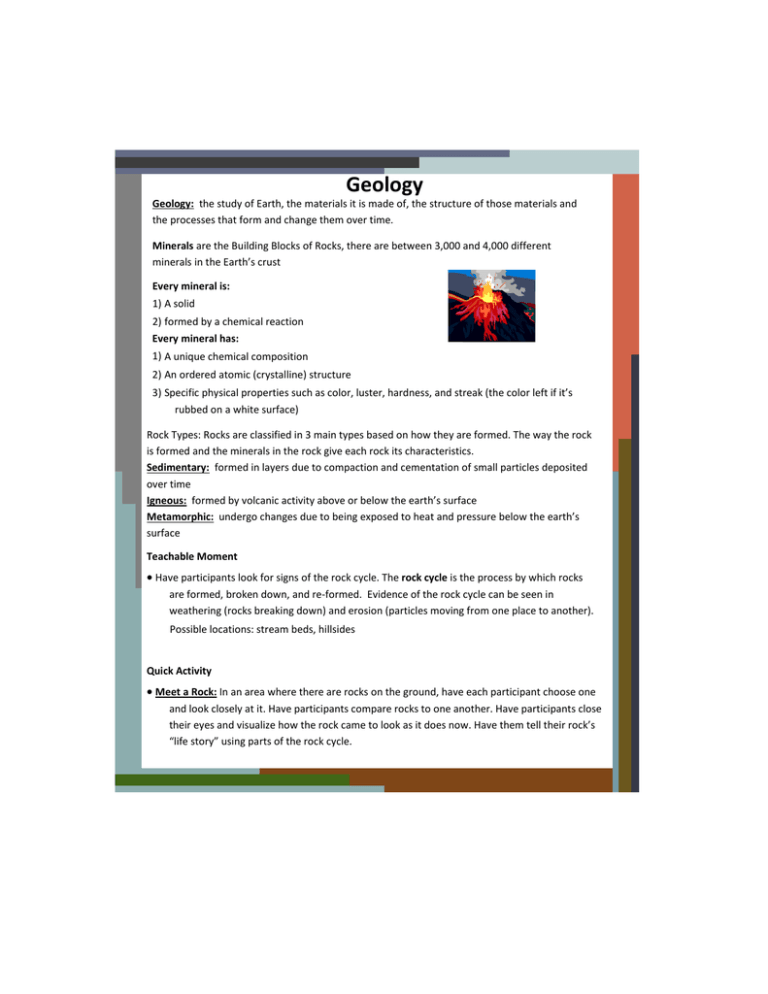
Geology Geology: the study of Earth, the materials it is made of, the structure of those materials and the processes that form and change them over time. Minerals are the Building Blocks of Rocks, there are between 3,000 and 4,000 different minerals in the Earth’s crust Every mineral is: 1) A solid 2) formed by a chemical reaction Every mineral has: 1) A unique chemical composition 2) An ordered atomic (crystalline) structure 3) Specific physical properties such as color, luster, hardness, and streak (the color left if it’s rubbed on a white surface) Rock Types: Rocks are classified in 3 main types based on how they are formed. The way the rock is formed and the minerals in the rock give each rock its characteristics. Sedimentary: formed in layers due to compaction and cementation of small particles deposited over time Igneous: formed by volcanic activity above or below the earth’s surface Metamorphic: undergo changes due to being exposed to heat and pressure below the earth’s surface Teachable Moment • Have participants look for signs of the rock cycle. The rock cycle is the process by which rocks are formed, broken down, and re-formed. Evidence of the rock cycle can be seen in weathering (rocks breaking down) and erosion (particles moving from one place to another). Possible locations: stream beds, hillsides Quick Activity • Meet a Rock: In an area where there are rocks on the ground, have each participant choose one and look closely at it. Have participants compare rocks to one another. Have participants close their eyes and visualize how the rock came to look as it does now. Have them tell their rock’s “life story” using parts of the rock cycle.
